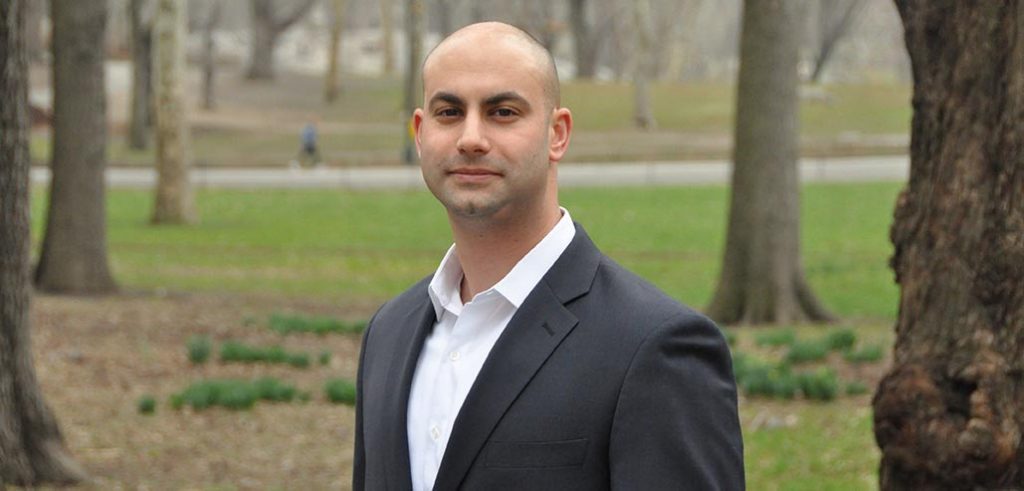In 2008, the Great Recession struck, swallowing up jobs and weakening entire employment sectors. Many of the newly jobless found themselves checking out the U.S. military as a way to reboot their careers.
A U.S. Navy recruiter at the time, Joel Knippel helped them do just that—and, in so doing, found a new path for himself as well.
Talking to people about what they wanted and helping them get it “opened up a whole new world to me,” said Knippel.
Today, as he completes his MBA at the Gabelli School of Business, he’s continuing to follow this career path by working as a recruiting outreach manager in human resources at Pfizer. It’s rewarding work that is a world apart from the ambitions he had set for himself while growing up in Brooklyn.
The son of public school teachers, he aspired to a military career from an early age and earned his commission through the Navy ROTC unit at SUNY Maritime College in the Bronx. He served for four years as a surface warfare officer and returned to SUNY Maritime for a master’s degree, intending to enter the shipping industry, but went back to active duty as a recruiter instead when the recession hit.
Serving as director of recruiting operations for New York City and much of its surrounding region, he encountered a wide cross-section of potential recruits, including many people with families who simply couldn’t find work.
“We had everyone from investment bankers who decided they want to be F-18 pilots to former lawyers who decided they want to be nuclear officers to just everyday blue-collar workers who had lost jobs,” he said. “For many of them, it was a call to service,” and made a profound change for the better in their lives, he said.
After three years in this role, he switched to the Navy Reserve and set out to build his business career, seeking a job that would allow for making a similar kind of impact on people’s lives. He worked at a tech startup while pursuing his MBA at Fordham, which he picked, in part, because of its strong support for veterans under the federal Yellow Ribbon Program.
Coming to Fordham was “a bit of a culture shock for me, but wonderful,” he said, because of the chance to absorb entirely new subjects—forecasting, capital structure, valuation—that he found fascinating.
“The exposure was fantastic,” he said. “The MBA forces you to be ready to move instinctively, and with a measure of agility, to take advantage of the right opportunity.”
That opportunity came midway through his degree program, when he learned of the Pfizer job through Fordham’s Edge4Vets program. He switched to the part-time MBA program so he could take the job, which involves helping recruit people from diverse backgrounds—including veterans and people with disabilities—and helping to ensure that they feel welcomed.
“The ability to have a positive impact—on the people we’re actively trying to recruit into the company as well as on the internal culture of the company—is tremendously rewarding,” he said.

